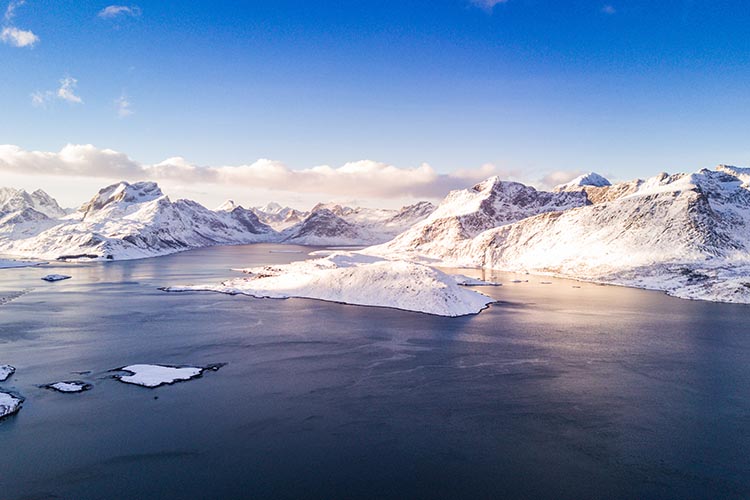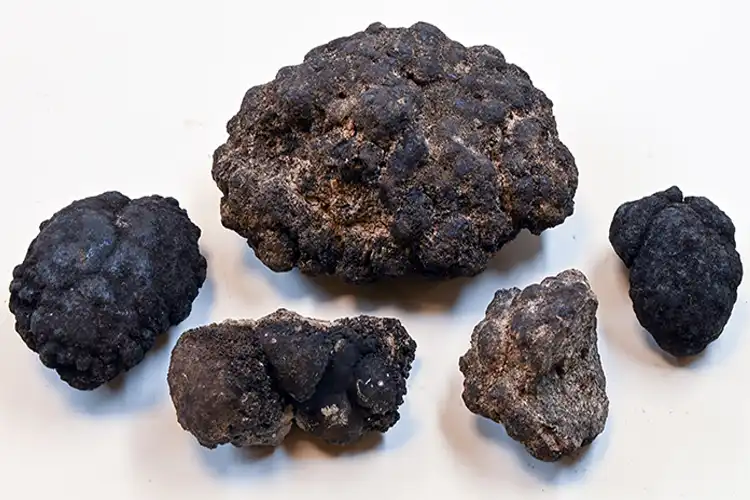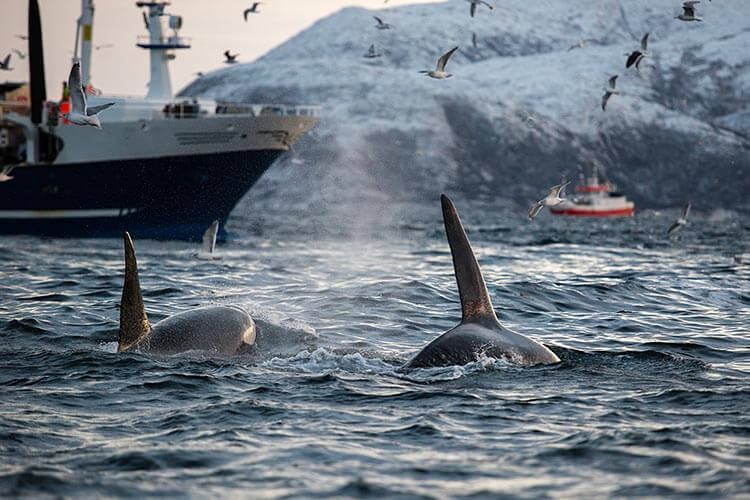
Norway has approved the exploration of an area of its deep sea floor for rare earth minerals – but what does that mean for the environment?
The government of Norway has recently signed a bill giving the go-ahead for companies to begin deep-sea mining expeditions in the country’s waters. Although the bill does not allow mining itself to begin, it paves the way for seabed exploitation.
Norway’s decision comes less than six months after talks held by the International Seabed Authority (ISA) failed to reach an agreement over the rules, regulations and procedures that would govern deep-sea mining operations.
The talks, held in July of 2023, resulted in a stalemate and the call from 24 different countries to place a moratorium on deep sea mining until more is known about the environmental impact that such activities might have. Norway, together with China and India, was vocal in its opposition to the moratorium.
Prospecting operations are already underway, mostly in a north-Pacific region known as the Clarion-Clipperton Zone – an area known to be rich in ‘polymetallic nodules’ formed from rare earth metals such as cobalt, copper, manganese, nickel, gold, silver, zinc and phosphorous – all of which are important in the manufacture of electronic equipment.
Related articles
- Future of deep-sea mining put on hold
- The future of deep-sea mining is being decided this week
- Biodiversity fears over deep sea mining
- Life Changing: Todd Thimios’ stunning Norway orca photography
- Wreck of British WWII submarine HMS Thistle located off Norway

Norway, however, is the first country to grant a license to prospect in its own national waters, an area covering 280,000 sq km (108,000 square miles) of the country’s continental shelf. The area is known to contain extensive deposits of cobalt and copper – highly valuable in the manufacture of electronic vehicles (EVs), in which Norway is one of the world’s market leaders – 79 per cent of all new car registrations in 2022 were EVs.
Advocates of deep-sea mining say that exploitation of the sea bed is necessary as the world becomes more reliant on smartphones and renewable energy technology in the form of EVs, solar panels and wind turbines, adding that mining the seafloor would also break the mineral monopolies held by China and Russia, and potentially halt the exploitation of child labourers in DR Congo’s cobalt mines.
Even with the passing of the new bill, it will be some time before any mining actually takes place, however. The process of obtaining the first permits for exploration is expected to take until at least 2025, with the companies involved required to submit proposals detailing their operations and expected environmental impact, which will be studied on a case-by-case basis before approval is granted.
As a result, the commencement of mining will not take place before 2032, according to Walter Sognnes, co-founder of Norwegian mining company, Loke Minerals, which will be one of the first to apply for a grant to explore the newly-approved zone.

‘We will have a relatively long period of exploration and mapping activity to close the knowledge gap on the environmental impact,’ said Sognnes. ‘We do understand the environmental side’s scepticism of deep-sea mining, but at the same time, I think we need to agree that this transition that we’re going through needs a vast amount of minerals. So the question is, where can we get these minerals with as low as possible environmental impact and also secure supply?’
Opponents say that there is no way of knowing what impact mining the sea floor would have on the environment, and that more research is required before any destructive activities take place. Activist organisations such as Greenpeace and WWF are simply demanding that the practice is outlawed before it even begins.
‘This is a new low from the Norwegian government,’ said Frode Pleym, head of Greenpeace Norway. ‘They are continuing exploration for oil in the fragile Arctic and now opening up vast ocean areas for mining companies. Norway presents itself as green on the global scene but their actions say otherwise.’

‘This decision is an irrevocable black mark on Norway’s reputation as a responsible ocean state,’ said Steve Trent, CEO and Founder of the Environmental Justice Foundation. ‘Deep-sea mining is a pursuit of minerals we don’t need, with environmental damage that we can’t afford. We know so little about the deep ocean, but we know enough to be sure that mining it will wipe out unique wildlife, disturb the world’s largest carbon store, and do nothing to speed the transition to clean economies.
‘The argument for destroying the deep sea for cobalt and nickel does not withstand scrutiny and Norwegian lawmakers must recognise this.’
Marianne Sivertsen Næss, chair of the Norwegian government’s Standing Committee on Energy and the Environment, said that the passing of the new bill was a ‘precautionary approach’ as ‘we do not currently have the knowledge needed to extract minerals from the seabed in the manner required.’
‘The government’s proposal to open an area for activity enables private players to explore and acquire knowledge and data from the areas in question,’ she said. ‘Opening up areas is not the same as approving extraction of seabed minerals.’
The International Seabed Authority talks are scheduled to recommence in March 2024, with a final vote to be expected in 2025, two years after the last ‘final vote’ went nowhere. It would seem that – for now – the future of deep-sea mining remains uncertain, but Norway’s decision suggests a certain air of inevitability.
- New shark-repellent hook could cut longline bycatch by more than 60 per cent - 17 February 2026
- Perth dive operator fined after leaving divers behind - 16 February 2026
- Aggressor Adventures announces upgraded Red Sea Aggressor IV - 13 February 2026


